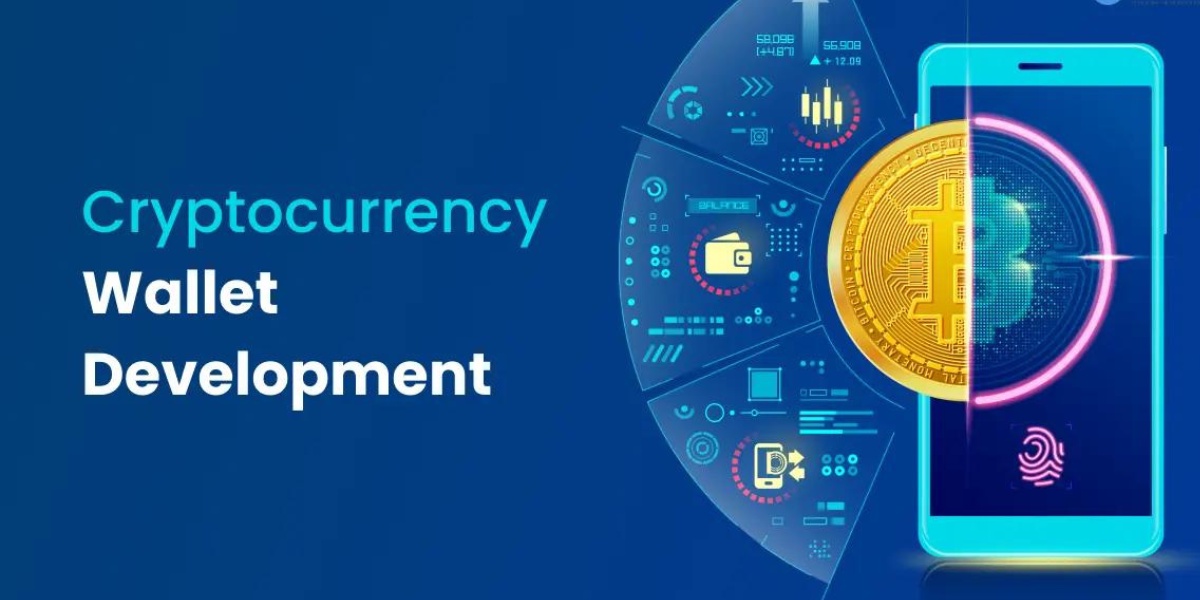Cryptocurrency wallet is essential for securely storing digital assets. Safeguarding your assets is paramount in the world of digital currencies, where the risk of theft or loss is a real concern. By mastering the art of crypto storage through cryptocurrency wallet development, you can ensure the security of your digital assets and have peace of mind knowing that your holdings are safe.
Understanding Cryptocurrency Wallets
A cryptocurrency wallet is a digital container that allows users to securely store, manage, and interact with their crypto assets. It acts as a bridge between the user and the blockchain, enabling transactions and providing access to the funds. At its core, a wallet consists of a pair of cryptographic keys: the private key and the public key. The private key is a secret code that allows the owner to access and manage their funds, while the public key serves as the wallet's address for receiving funds. Wallets utilize these keys to sign transactions and validate ownership.
Types of Cryptocurrency Wallets
There are several types of cryptocurrency wallets available, each with its own strengths and considerations.
- Software Wallets: These wallets are available as applications that can be installed on desktops, smartphones, or accessed online. They offer convenience and accessibility, with options like desktop wallets for more secure storage and mobile wallets for on-the-go transactions. Online wallets, although convenient, are considered less secure due to the potential for online threats.
- Hardware Wallets: Hardware wallets are physical devices designed to store cryptocurrency offline. They provide an extra layer of security by keeping the private keys offline, away from potential hackers. Hardware wallets are considered one of the most secure options but may come with a cost.
- Paper Wallets: A paper wallet involves printing or writing down the private key on a physical piece of paper. It is a completely offline storage method, making it highly secure against online threats. However, caution must be exercised to ensure the paper wallet is kept safe from physical damage or loss.
- Multi-signature Wallets: These wallets require multiple private keys to authorize transactions. They offer enhanced security by distributing the control of funds among multiple parties, reducing the risk of single-point failure. Multi-signature wallets are often used by businesses or organizations that require shared ownership and added security measures.
Security Considerations for Wallet Development
When developing a cryptocurrency wallet, security should be a top priority. Some key security considerations to keep in mind:
- Strong Passwords and Two-Factor Authentication: Encourage users to choose strong passwords and enable two-factor authentication to add an extra layer of security to their wallets.
- Backup and Recovery Options: Provide users with secure backup and recovery mechanisms, such as mnemonic phrases or seed phrases, to ensure they can regain access to their funds if they lose their wallet or encounter technical issues.
- Secure Storage of Private Keys: Implement robust encryption techniques to protect private keys stored within the wallet. Consider utilizing hardware encryption modules or secure enclaves for added security.
- Evaluating Wallet Providers: Prioritize wallet providers with a strong reputation and a track record of security. Research and verify their security features, audit history, and community reviews before selecting a wallet provider.
Best Practices for Cryptocurrency Wallet Management
To effectively manage your cryptocurrency wallet, consider implementing the following best practices:
- Regularly Updating Wallet Software: Stay up to date with the latest wallet software versions to benefit from bug fixes and security enhancements.
- Keeping Track of Wallet Addresses and Transactions: Maintain a record of your wallet addresses and transactions to easily track and reconcile your crypto holdings.
- Avoiding Phishing and Social Engineering Attacks: Be cautious of suspicious emails, messages, or websites that attempt to trick you into revealing your wallet information. Always verify the authenticity of the source before providing any sensitive data.
- Being Cautious with Third-Party Integrations and Services: Exercise caution when integrating your wallet with third-party applications or services. Ensure that these integrations are secure and trustworthy to mitigate potential risks.
The Future of Cryptocurrency Wallets
As the cryptocurrency ecosystem continues to evolve, so will the development of cryptocurrency wallets. Few potential future trends are:
- Advancements in Wallet Technology: Expect continuous advancements in wallet technology, such as improved user interfaces, enhanced privacy features, and better integration with emerging blockchain protocols.
- Integration with Decentralized Finance (DeFi) Protocols: Wallets will likely become more integrated with decentralized finance applications, enabling users to easily access and interact with DeFi platforms directly from their wallets.
- Wallets as Gateways to the Decentralized Web (Web 3.0): With the rise of Web 3.0, wallets may serve as gateways to access decentralized applications, identity management systems, and other blockchain-based services.
- Improving User Experience and Accessibility: Wallet developers will focus on creating more user-friendly interfaces and improving accessibility to attract a wider audience and simplify the onboarding process for newcomers.
Conclusion
Cryptocurrency wallet development is crucial for safely managing your digital assets. By understanding the different types of wallets, implementing robust security measures, and staying updated on industry developments, you can master the art of crypto storage and ensure the safety of your cryptocurrency investments. It's essential to prioritize security and stay vigilant to safeguard your crypto holdings effectively. With the right approach to cryptocurrency wallet development, you can have peace of mind knowing that your digital assets are secure.


No comments yet